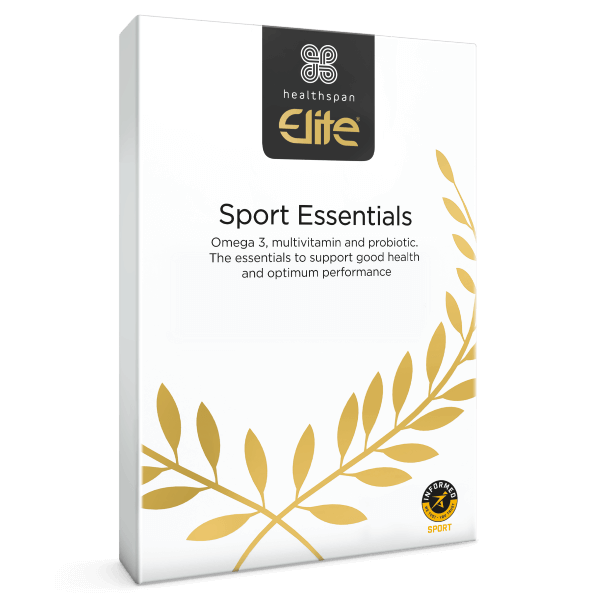Ever wondered what a typical training day entails for an elite sportsperson? We talk to Paul Mullan, Head of Sports Science and Medicine for the British Sailing Team, to get an idea of a typical day for a member of their podium squad leading up to an event.
What does a typical training day entail for a member of the podium squad leading up to an event?
One of the unique challenges with sailing is that there is no typical day. We are quite literally at the hands of Mother Nature. Different wind conditions bring different sailing demands which makes planning ahead quite difficult. Whilst we try and forecast, there is never much confidence in predictions for much more than a couple of days in advance.
What we do know is that the human body does not adapt to a random training stimulus, which means we have to be in close contact with sailors and coaches to ensure we balance the training to make it as progressive and non-random as possible. The training focus varies widely between the team members and is dictated by the class of boat they sail (some are more strength and power orientated while others have a high aerobic demand) and their personal priorities identified by their performance profiles.
What would a typical diet be for a member of the team prior to a major event?
We always promote good sources of carbohydrates and protein, avoiding saturated fats which slow down the breakdown of carbohydrates. We aim for 5-7 portions of fruit and vegetables a day with a higher proportion coming from vegetables around competitions to reduce the acidity of the gut. A typical day's diet would consist of some of the following:
Breakfast
- Poached eggs and avocado on muffins
- The British Sailing 'Full' English: Baked beans, grilled tomatoes, grilled mushrooms, poached or scrambled eggs (lean bacon allowed, sausages and black pudding not)!
- Porridge with mixed nuts, seeds and blueberries
When racing we try and reduce the acidity of foods as we feel it helps the gut function better in stressful situations, so we tend to drink vegetable juices rather than fruit juices around major events.
Lunch
This varies a bit as will depend whether it's being consumed on the water or on land. On water, we ensure the team are well prepared and do not divert to easy convenience foods. Maintaining optimum nutrition in these condition is really important, but a little harder. No excuses though!
On Water (in Tupperware and hoping that it's not too wavy!)
- Tuna/chicken/turkey wrap, green leafy salad, tomatoes
- Rice and Tuna with mixed peppers
On Land
- Mackerel and crème fresh pâté with crispbread and a green leafy salad
- Wholemeal pasta with chicken and tomato sauce plus a side salad
- Quinoa, avocado and chicken with spring greens
Dinner
At the end of a training day it is essential to consume good sources of protein to help with recovery and muscle repair as well as carbohydrate to restore energy stores
- Seared tuna or salmon steak, fresh vegetables and oven cooked sweet potato wedges
- Lean beef steak, jacket potato and salad
- Omelette with chicken, vegetables and salad
Evening Snack
A milky drink helps provide the body with some slow release protein to assist recovery overnight.
Are there any dietary guidelines which are set-out for the team?
We tailor specific guidelines to the needs of the individuals, however there are some general principles that apply to everyone:
- We operate a 'food first' philosophy. A healthy, balanced diet is an essential cornerstone for everyone
- Eat a variety of foods rich in antioxidants, generally this means choosing foods with a variety of colours, in particular greens and deep reds/purples
- Eat 5-7 portions of fresh fruit and vegetables daily
- Drink plenty of fluids
- Avoid over-indulging in foods high in refined sugars and saturated fats
Do you recommend vitamins and supplements?
Yes we do, however this should never be considered a replacement for a well-balanced diet. Vitamins and supplements are a vital way to support the increased demands that anyone in training places their body under. There are also some supplements that have significant health benefits, and having a healthy sailor is just as important as being fit and strong.
The team currently takes Healthspan Elite's High Strength Probiotic, High Strength Omega 3 and Gold A-Z Multivitamin. The fact that the range is batch tested means that it is perfect for the team as they are subject to regular testing as part of UKAD's national anti-doping programme.

Elite Sport Essentials
Three essential supplements to support good nutrition and optimum performance
- Multivitamin, omega 3 and probiotic
- Convenient daily tear strips
- Supports energy levels, recovery and digestive health
Is there an optimum time you recommend for the team to take any vitamins and supplements?
This is dependent on the specific supplement. Some supplements like Omega 3 fish oils and probiotics have a good rationale to use on a long term basis. We tend to also use a multi-vitamin during periods of heavy training or travel as generally these are the times where maintaining optimum nutrition can be a little trickier.
With regards to best times of day for supplementation, we recommend the team take probiotics first thing in the morning before they eat or drink anything as this is when the stomach acid is least active and allows for the highest yield of live bacteria to reach the intestine. Fish oils on the other hand are most beneficial when taken with food, particular with a small amount of fat, as they are fat soluble and if taken on an empty stomach can be used for energy rather than being utilised for key functions within the body.
What proportion of the time to members of the team spend on the water versus an indoor environment such as a gym?
Land training is a really important part of every sailor's programme, however sailors win medals by sailing, so quality, purposeful time on the water is the key factor. The land training they do is aimed at increasing the quality and the duration they can spend engaging in high value training on the water. Sometimes this can be a bit of a chicken and egg scenario in respect of which comes first, especially when sailors transition into new boats.
In this situation the primary aim is to spend as much time mastering the boat on the water, but it is the job of the SSSM team to ensure that they are robust enough to engage in this level of training without increasing their risk of illness and injury - the presence of either directly impacts time in purposeful training so we do everything we can to prevent this being an issue, prevention is better than cure in this situation without doubt! In a typical training week sailors will take on 20-25 hours of training pushing to 30 in a big week. This training is made up of time on the water, aerobic training (cycling and rowing are the preferred forms) and strength and conditioning work.
What are the energy demands of a member of the British Sailing Team and how do you accommodate this?
This is often underestimated. Most people's experience of sailing or windsurfing is while on holiday. This type of sailing is great fun, but an Olympic sailor takes what these dinghies or boards can do to the edge. In order to do this, they have to use every muscle in their body to move the boat through the water as fast as possible. A well coined phrase is that we win medals sitting on our bums, so the general perception is that the sailors don't do a lot physically. In fact a sailor commonly burns between 3000-4000kcal during a 3hr on-water sailing session.









